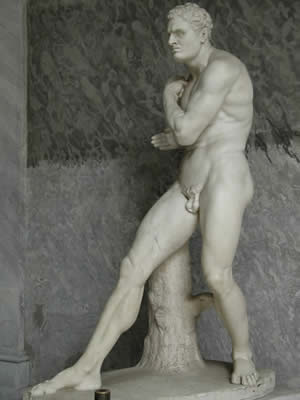
The Work of the Body |
“As I have already said, the wrong, independent, or automatic work of the moving center deprives the other centers of support and they involuntarily follow the moving center. Often, therefore, the sole possibility of making the other centers work in a new way is to begin with the moving center; that is with the body. A body which is lazy, automatic, and full of stupid habits stops any kind of work”
“But theories exist,” said one of us, “that a man ought to develop the spiritual and moral side of his nature and that if he attains results in this direction there will be no obstacles on the part of the body. Is this possible or not?”
“Both yes and no,” said G. “The whole point is in the ‘if.’ If a man attains perfection of a moral and spiritual nature without hindrance on the part of the body, the body will not interfere with further achievements. But unfortunately this never occurs because the body interferes at the first step, interferes by its automatism, its attachment to habits, and chiefly by its wrong functioning. If the development of the moral and spiritual nature without interference on the part of the body is theoretically possible, it is possible only in the case of an ideal functioning of the body. And who is able to say his body functions ideally?
“And besides there is deception in the very words ‘moral’ and ‘spiritual’ themselves. I have often enough explained before that in speaking of machines one cannot begin with their ‘morality’ or their ‘spirituality,’ but that one must begin with their mechanicalness and the laws governing this mechanicalness. The being of man number one, number two, and number three is the being of machines which are able to cease being machines but which have not ceased being machines.”
...
"Ordinary man, even if he comes to the conclusion that work on himself is indispensable--is the slave of his body. He is not only the slave of the recognized and visible activity of the body but the slave of the unrecognized and the invisible activities of the body, and it is precisely these which hold him in their power. Therefore when a man decides to struggle for freedom he has first of all to struggle with his own body."
Excerpt taken from In Search of the Miraculous by P. D. Ouspensky, pub. Paul H. Crompton Ltd, 2004 pp. 348-350.
Commentary
Illustrative of the principles demonstrated by the interactions between Materialty, Desire, and Will (power) as described by the enneagram. The iteration 142 shows that Will ought to intervene between Materiality (the body) and Desire in order to give it direction; but it doesn't, because a conscious shock — a higher influence — is necessary between these otherwise mechanical and automatic manifestations.
If Will Is rightly involved in this triad, Desire— which is generally, in its mechanical sense, nothing more than an urge— has the potential to become aim, because it has been given direction. Animals have urges. Man's urges can become aims; but only if one works.
A great deal of Jeanne de Salzmann's teachings is directly linked to this question , but she brought it using a different language and approach than Gurdjieff. Understanding the connection between Gurdjieff, Ouspensky, and Jeanne and Michel de Salzmann's work depends in part on understanding these particular questions. In fact, despite their apparent differences, they are fundamentally the same; but much of it is offered on a level Ouspensky might have been unable to understand.